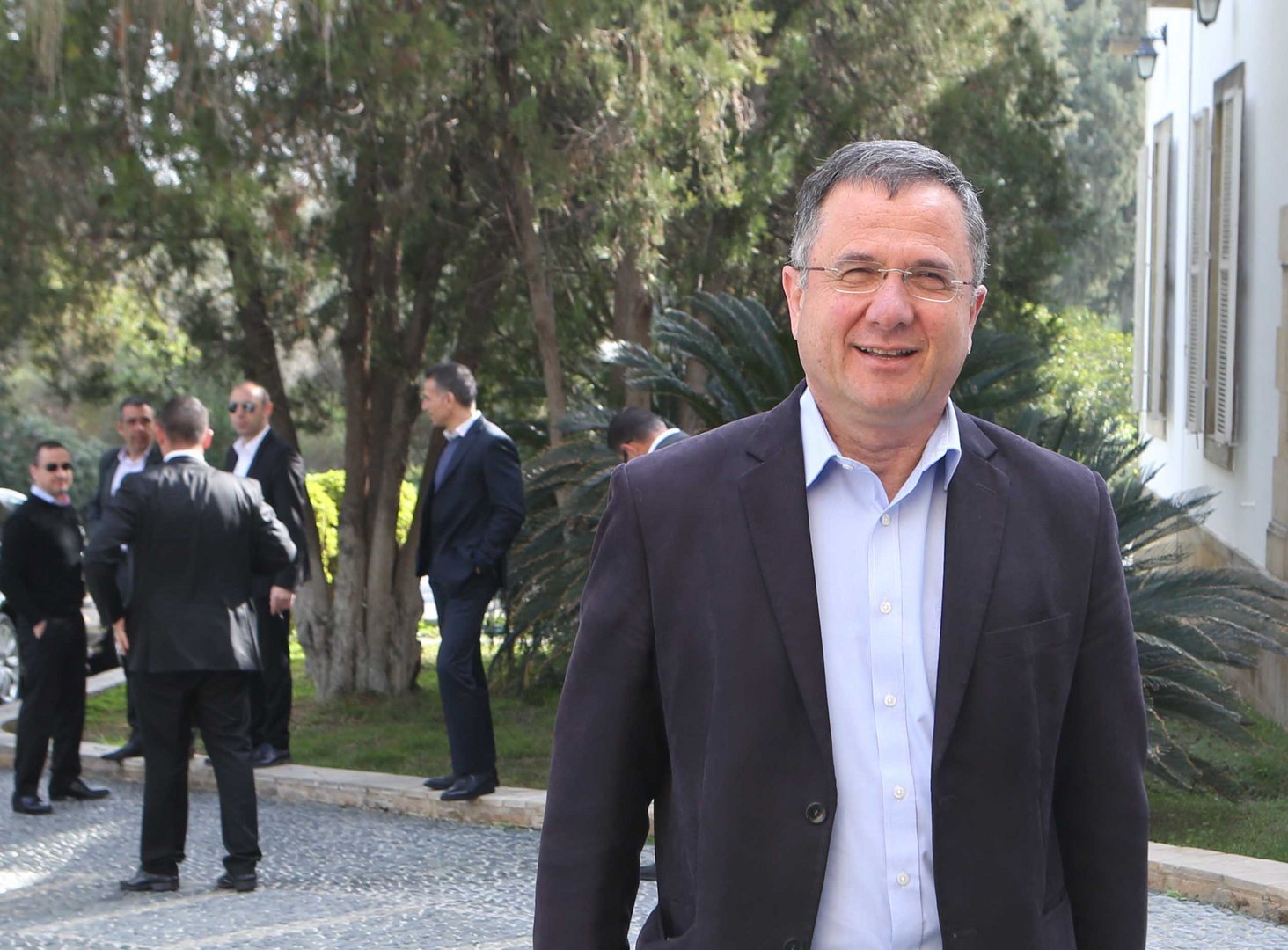Push to move party away from focus on the Cyprus problem to big environmental issues
The Green Party was to decide its future direction on Sunday when members were scheduled to vote for a new leadership, but this will have to wait for at least two months after a party member, who had been expelled, secured a court injunction against the holding of the elections.
Nicosia district court on Friday approved an interim order, suspending the expulsion of the applicant, Sotiris Christou, by the party on 19 July, until his case is tried, so that he does not lose the right to stand as a candidate for the presidency in the October 10 elections.
The court “suspends the forthcoming elections of the movement for a period of 60 days, so the applicant could submit his candidacy for the presidency of the Green movement and so that he has the right to stage an election campaign, for the sake of equality,” the ruling stated.
Christou had been a member of the party, who left and then returned. He was expelled by the party, after he had allegedly claimed he had recorded the deputy leader of the party, Efi Xanthou, and distributed the recording to 30 people, something he subsequently denied.
This is the second party election against which a court injunction has been issued in the last couple of weeks. The first one was issued against Edek’s Nicosia electoral congress that was scheduled for last Sunday, but the party leadership ignored the court order and went ahead with its plans.
The Greens chose to respect the court order and will now have to organise another conference in order to give Christou 60 days to stage his election campaign for the party leadership. Interestingly, one of the three candidates standing for the leadership – Maria Elena Panayiotou, a student at Crete Polytechnic – is his daughter. She will probably not stand now her father will be standing.
The Greens’ leadership election is seen as a test on whether the party could make a break from the legacy of Giorgos Perdikis, who led and dominated the Greens for 20 years. Perdikis, stepped down in 2020, he remains so involved in the party that some members are claiming that he has cast his shadow over the election.
Officially, Perdikis had not taken a stand in favour of any candidate, but members of the party make no secret of the fact that there are two factions seeking election – one is very close to the former leader while the other wants the party to take a new direction.
“The election will show if the movement wants to become a true, European Green party, which will open up, be represented in European bodies and deal with the big environmental issues affecting the planet,” said a member, who chose anonymity, before the court decision.
Until the court order, there were three candidates for the leadership. Charalambos Theopemptou, a former Commissioner for the Environment, who has been the interim leader since Perdikis stepped down in September last year and led the party in May’s parliamentary elections, who would be standing against Kyriacos Tsimillis, an environmental activist for many years with a glowing CV, and a friend and close associate of Perdikis ever since they worked together to create the Greens movement more than 20 years ago.
The third candidate is Maria Elena Panayiotou, will most probably make way for her father to stand in the rescheduled elections.
“There are differences in policies between the candidates, but that is perfectly acceptable in a party,” said Xanthou, who was seeking re-election as deputy leader. She admitted there had been some arguments between rival groups about the parliamentary election results, but this was “part of party democracy”.
“Difference always exist among members – we do not all agree on gas exploitation, immigration, tall buildings or the Cyprus problem,” she said.
The Greens’ share of the vote in 2021 was down to 4.4 per cent from 4.8 per cent in 2016, which represented a fall of a little more than a thousand votes. In one of the quirks of the election, however, they won one more seat than in 2016, taking their total to three for the first time.
“They used the election result to get at Theopemptou,” said the anonymous source, who also claimed that Perdikis had not offered much help in the election campaign. Why he would do so, given he was not standing and had relinquished the leadership, is another matter.
Theopemptou was blamed for the allegedly disappointing election result by those influenced by Perdikis, but he countered that under pandemic conditions the party did quite well.
“We did not have the funds to pay for big advertising campaigns on Facebook like the other parties and because of Covid we were prevented from carrying out traditional campaigning such as holding public gatherings and visiting places,” said Theopemptou.
“We still met the target of three seats and for the first time in our history we took the presidency of a House committee, more importantly of the environment committee.”
Tsimillis, who has the credentials of 25 years involvement in the Greens, which were originally a team of three – himself, Perdikis and Theopemptou’s late wife Evi – believed his rival confused voters during the election campaign by equivocating on the party’s traditional position on the Cyprus problem, when asked about it.
“There was a lack of clarity on the Cyprus problem during the campaign and we avoided talking about it,” he said.
When asked about the Cyprus issue, Theopemptou would refer people to the position stated on our website, said Tsimillis, and then in February he let it slip that the positions on the Cyprus problem would change, “something that was bound to confuse our traditional voters”.
The Greens’ position on the Cyprus problem has led many to equate them with rejectionist parties such as Edek and Diko. It was based, according to Tsimillis, on an “environmental rationale”. The party “opposes geographical segregation, which is the main feature of a bizonal bicommunal federation,” he explained.
This was also Perdikis’ line. Under his leadership the party issued many more announcements on the Cyprus problem than it did on environmental matters.
This was the wrong approach, said one member of the Greens, considering the environment has become the big issue in the world.
“We have the climate crisis, which is threatening the future of the planet, to deal with, the mega fires, the melting of ice; the green economy that will become part of our life,” the anonymous source said.
“This is what the European Greens have been focusing on for years now, whereas we have largely ignored it,” she added.
“The young are interested in these issues and the fact we do not appeal to the young, reflects our failure to take up green policies in a meaningful way.”
The Green Party was to decide its future direction on Sunday when members were scheduled to vote for a new leadership, but this will have to wait for at least two months after a party member, who had been expelled, secured a court injunction against the holding of the elections.
Nicosia district court on Friday approved an interim order, suspending the expulsion of the applicant, Sotiris Christou, by the party on 19 July, until his case is tried, so that he does not lose the right to stand as a candidate for the presidency in the October 10 elections.
The court “suspends the forthcoming elections of the movement for a period of 60 days, so the applicant could submit his candidacy for the presidency of the Green movement and so that he has the right to stage an election campaign, for the sake of equality,” the ruling stated.
Christou had been a member of the party, who left and then returned. He was expelled by the party, after he had allegedly claimed he had recorded the deputy leader of the party, Efi Xanthou, and distributed the recording to 30 people, something he subsequently denied.
This is the second party election against which a court injunction has been issued in the last couple of weeks. The first one was issued against Edek’s Nicosia electoral congress that was scheduled for last Sunday, but the party leadership ignored the court order and went ahead with its plans.
The Greens chose to respect the court order and will now have to organise another conference in order to give Christou 60 days to stage his election campaign for the party leadership. Interestingly, one of the three candidates standing for the leadership – Maria Elena Panayiotou, a student at Crete Polytechnic – is his daughter. She will probably not stand now her father will be standing.
The Greens’ leadership election is seen as a test on whether the party could make a break from the legacy of Giorgos Perdikis, who led and dominated the Greens for 20 years. Perdikis, stepped down in 2020, he remains so involved in the party that some members are claiming that he has cast his shadow over the election.
Officially, Perdikis had not taken a stand in favour of any candidate, but members of the party make no secret of the fact that there are two factions seeking election – one is very close to the former leader while the other wants the party to take a new direction.
“The election will show if the movement wants to become a true, European Green party, which will open up, be represented in European bodies and deal with the big environmental issues affecting the planet,” said a member, who chose anonymity, before the court decision.
Until the court order, there were three candidates for the leadership. Charalambos Theopemptou, a former Commissioner for the Environment, who has been the interim leader since Perdikis stepped down in September last year and led the party in May’s parliamentary elections, who would be standing against Kyriacos Tsimillis, an environmental activist for many years with a glowing CV, and a friend and close associate of Perdikis ever since they worked together to create the Greens movement more than 20 years ago.
The third candidate is Maria Elena Panayiotou, will most probably make way for her father to stand in the rescheduled elections.
“There are differences in policies between the candidates, but that is perfectly acceptable in a party,” said Xanthou, who was seeking re-election as deputy leader. She admitted there had been some arguments between rival groups about the parliamentary election results, but this was “part of party democracy”.
“Difference always exist among members – we do not all agree on gas exploitation, immigration, tall buildings or the Cyprus problem,” she said.
The Greens’ share of the vote in 2021 was down to 4.4 per cent from 4.8 per cent in 2016, which represented a fall of a little more than a thousand votes. In one of the quirks of the election, however, they won one more seat than in 2016, taking their total to three for the first time.
“They used the election result to get at Theopemptou,” said the anonymous source, who also claimed that Perdikis had not offered much help in the election campaign. Why he would do so, given he was not standing and had relinquished the leadership, is another matter.
Theopemptou was blamed for the allegedly disappointing election result by those influenced by Perdikis, but he countered that under pandemic conditions the party did quite well.
“We did not have the funds to pay for big advertising campaigns on Facebook like the other parties and because of Covid we were prevented from carrying out traditional campaigning such as holding public gatherings and visiting places,” said Theopemptou.
“We still met the target of three seats and for the first time in our history we took the presidency of a House committee, more importantly of the environment committee.”
Tsimillis, who has the credentials of 25 years involvement in the Greens, which were originally a team of three – himself, Perdikis and Theopemptou’s late wife Evi – believed his rival confused voters during the election campaign by equivocating on the party’s traditional position on the Cyprus problem, when asked about it.
“There was a lack of clarity on the Cyprus problem during the campaign and we avoided talking about it,” he said.
When asked about the Cyprus issue, Theopemptou would refer people to the position stated on our website, said Tsimillis, and then in February he let it slip that the positions on the Cyprus problem would change, “something that was bound to confuse our traditional voters”.
The Greens’ position on the Cyprus problem has led many to equate them with rejectionist parties such as Edek and Diko. It was based, according to Tsimillis, on an “environmental rationale”. The party “opposes geographical segregation, which is the main feature of a bizonal bicommunal federation,” he explained.
This was also Perdikis’ line. Under his leadership the party issued many more announcements on the Cyprus problem than it did on environmental matters.
This was the wrong approach, said one member of the Greens, considering the environment has become the big issue in the world.
“We have the climate crisis, which is threatening the future of the planet, to deal with, the mega fires, the melting of ice; the green economy that will become part of our life,” the anonymous source said.
“This is what the European Greens have been focusing on for years now, whereas we have largely ignored it,” she added.
“The young are interested in these issues and the fact we do not appeal to the young, reflects our failure to take up green policies in a meaningful way.”








Click here to change your cookie preferences